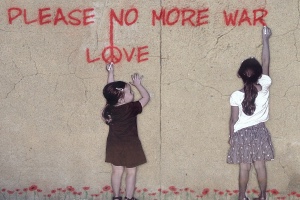
Russia-Ukraine War
Putin reviews issues pertaining to the agreements being worked out with Scholz and Macron
Vienna/Kyiv/Moscow: Ukraine told the International Atomic Energy Agency (IAEA) that technicians had started repairing damaged power lines to restore external electricity supplies to the site of the Chornobyl Nuclear Power Plant (NPP). The electricity supplies to the NPP, which is now under Russia’s control, were entirely cut earlier in the week, IAEA Director General Rafael Mariano Grossi informed.
Ukraine’s regulatory authority said work that began on the evening of March 10, 2022 (local time), had succeeded in repairing one section, but off-site electrical power was still down, indicating there was still damage in other places. The repair efforts would continue despite the difficult situation outside the NPP site, it added.
Emergency diesel generators have been providing backup power to the site since March 9, 2022, and the regulator reported that additional fuel had been delivered to the facility. However, it remains important to fix the power lines as soon as possible, it said.
The IAEA, however, stated that the staff at the Chornobyl NPP were facing increasingly difficult conditions. The 211 technical personnel and guards have in effect been living at the site for more than two weeks, the regulator said, expressing concern also about the availability of food reserves.
Also read: Lukashenko to Putin: “Foreign mercenaries walking to Chornobyl plant”
Earlier, the President of Belarus, Alexander Lukashenko, discussed Chornobyl with Russian President Vladimir Putin yesterday and claimed foreign mercenaries walking to the Chornobyl plant and that Ukraine was ready to blow up “the largest nuclear power plants”.
Prior to that, Russian Defence Minister Sergei Shoigu had warned Putin during a meeting of the permanent members of the Russian Security Council that NATO was beefing up their forces near Russia’s western borders, to which Putin responded seeking a detailed discussion.
Putin today had telephone conversations with German Chancellor Olaf Scholz and French President Emmanuel Macron, wherein, according to Kremlin, the three countries’ leaders reviewed “some issues pertaining to the agreements being worked out concerning the implementation of the earlier Russian demands”.
Accusing Kyiv of violating international humanitarian law, Putin claimed the Ukrainian army and police were involved in extrajudicial killings of dissenters, hostage-taking and the use of civilians as human shields, deployment of heavy weaponry in residential areas, in proximity to hospitals, schools, kindergartens. “At the same time, nationalist battalions regularly sabotage rescue operations and threaten civilians when they attempt to evacuate,” he said and urged Macron and Scholz to influence Kyiv authorities “so as to stop such criminal acts”.
Meanwhile, Petro Kotin, the head of the National Nuclear Energy Generating Company of Ukraine, “Energoatom”, claimed that Russia wanted to get full control over Zaporizhzhia nuclear power plant. Kotin claimed the Russian troops had declared to the station staff, that now it belonged to the Russian state company “Rosatom”. He further claimed that 10 officials of “Rosatom” tried to get in the ZNPP and take it under control, but so far they failed.
The IAEA stated that the power supply situation at the Zaporizhzhya NPP site was unchanged and that two of the four high voltage (750 kV) offsite power lines were damaged. The NPP also has an additional power line on standby.
The operator there informed the IAEA that the Zaporizhzhya NPP off-site power needs could be provided with one power line available. In addition, diesel generators were ready and functional to provide backup power. Besides, work was ongoing there to detect and dispose of unexploded munitions found in its damaged training centre and other places after the Russian forces took control of Ukraine’s largest nuclear power plant with six reactors, on March 4, 2022, the regulator said. The IAEA claimed that it was experiencing difficulties in reaching the Zaporizhzhya NPP management.
Meanwhile, in the city of Kharkiv, a new nuclear research facility that was also previously hit has suffered additional damage, the regulator said. The facility was used for research and development and radioisotope production for medical and industrial applications.
Because its nuclear material is subcritical and the inventory of radioactive material is very low, the IAEA assessed that the damage would not have had any radiological consequence. Nevertheless, it highlighted once again the risks facing Ukraine’s nuclear installations during the armed conflict.
– global bihari bureau





